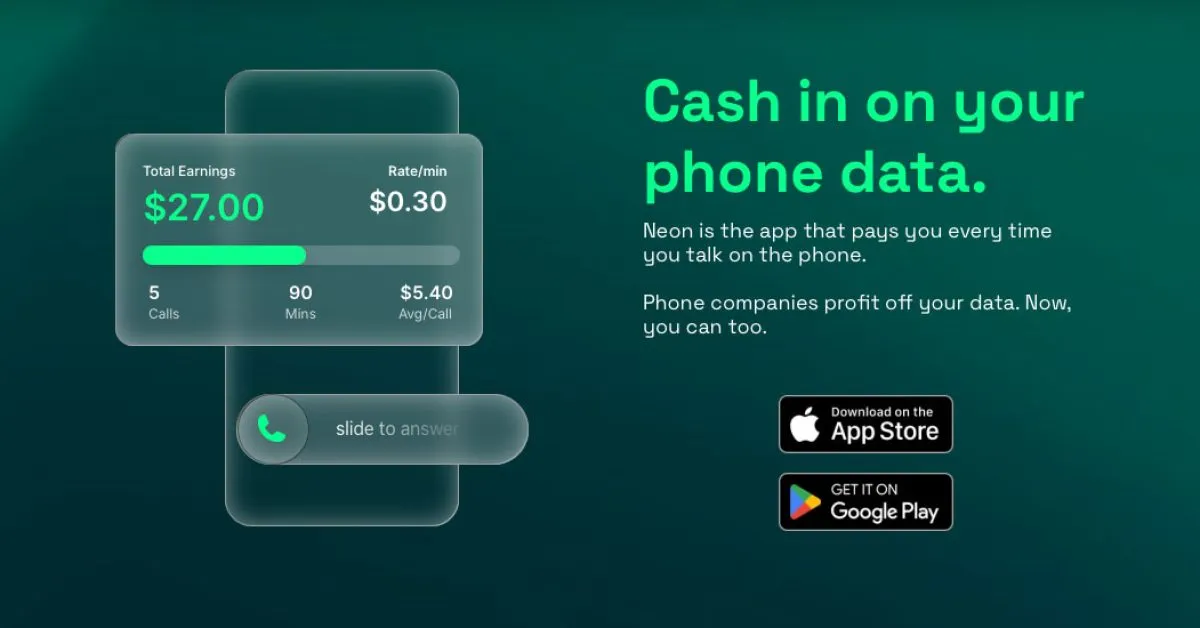
A new and bizarre app is making waves in the social networking world by inviting users to record and share their audio calls. This app, developed by Neon Mobile, has quickly climbed the ranks and is now the second most downloaded social app in the App Store. By allowing their audio conversations to be sold to AI companies, users can potentially earn hundreds or even thousands of dollars per year. This innovative yet controversial approach has captured the attention of many.
TechCrunch reported that Neon Mobile’s app made a significant surge in the App Store rankings. Initially, it ranked No. 476 in the Social Networking category of the U.S. App Store on September 18. However, by the end of the following day, it skyrocketed to No. 10 and, as of Wednesday morning, settled at No. 6. This meteoric rise reflects a growing interest in apps that monetize user data.
In its promotional materials, Neon Mobile argues that while telecom companies profit from user data, individuals should also receive compensation. The app processes call recordings with user consent, removes personal information, and sells the anonymized audio to companies for AI training purposes. Users are paid $0.15 per minute of audio, with the rate increasing to $0.30 when calling other Neon users, which means users could potentially earn up to $30 a day.
When using the Neon app to make calls, the recording process is straightforward. If you are the only Neon user on the call, only your side of the conversation will be recorded. However, if both parties are using Neon, the app captures both sides, provided at least one user initiated the call through the app. Neon claims that their technology effectively filters out names, numbers, and other identifying details, enhancing user privacy.
Despite the app’s assurances, there are notable concerns regarding privacy. A crucial point in the privacy policy states that if you delete the Neon app without closing your account, your calls may still be recorded when other Neon users call you. To completely stop call recordings, users must close their accounts through the profile settings. This has raised eyebrows among privacy advocates and cybersecurity experts.
Experts have pointed out ambiguities in the company's statements regarding call recordings. Peter Jackson, a cybersecurity and privacy attorney at Greenberg Glusker, expressed concerns that the term "one-sided transcripts" could imply a loophole, suggesting that Neon might be recording entire conversations but only omitting what the other party said in the transcripts. Additionally, the terms and conditions appear to give the company broad leeway to utilize the data as it sees fit.
Neon Mobile’s app is at the forefront of a new trend that challenges the relationship between privacy and profit. While users have the opportunity to monetize their audio conversations, the implications for privacy are significant. As the app continues to gain popularity, it raises important questions about data ownership and the ethics of selling personal information. Users should carefully weigh the potential financial benefits against the risks to their privacy before engaging with this novel social networking platform.